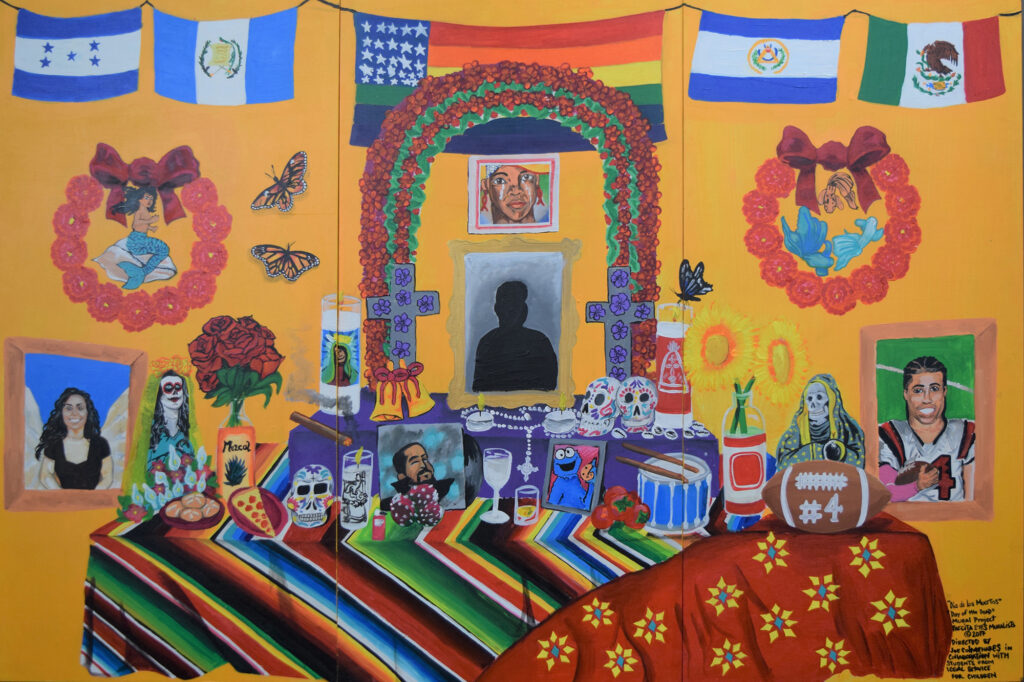
Through our strategic framework, we work with our grantees and other partners to promote belonging, connection, and a shared sense of safety among people and communities across the Bay Area and California. We believe in the power of arts and culture in bringing people together, changing hearts and minds, and imagining a better future.
We support work in Alameda, Contra Costa, and San Francisco counties that deepens community involvement, advances fair policies and practices, and creatively expresses our shared humanity and a future where everyone has what they need to thrive.
The building blocks of change will create the conditions to achieve our vision, a Bay Area where every resident feels safe, welcome, and has what they need to thrive. This is demonstrated by our grantee partners in the stories below.
Throughout its rich 50 year history, DDT has been steadfast in creating, performing and teaching dance that is reflective of the historical African Diaspora experience through the lens of African Americans. DDT prides itself on its commitment to high artistic standards, diversity, inclusivity and performance excellence.
The company’s unique repertoire advocates cultural integrity, innovative dynamism, cultivates dialogue, new ways of thinking, while instilling hope for a better world, with choreographic work based in African and African American roots that addresses social justice and inequality throughout the African Diaspora.
DDT meets the challenges facing its community with leadership, activism, faith, commitment to their families, and hope for a better life, and engages communities by providing cultural awareness and connections through workshops, panel discussions, performance presentations and field trips. These activities provide increased civic participation; tools to face and address adversity; encourage community building; using art to facilitate unheard voices for dialogue with policymakers. These partnerships enable artists and audiences to share their humanity and amplify their narratives to increase understanding between people, offering hope and actions for healing to improve conditions in all communities.
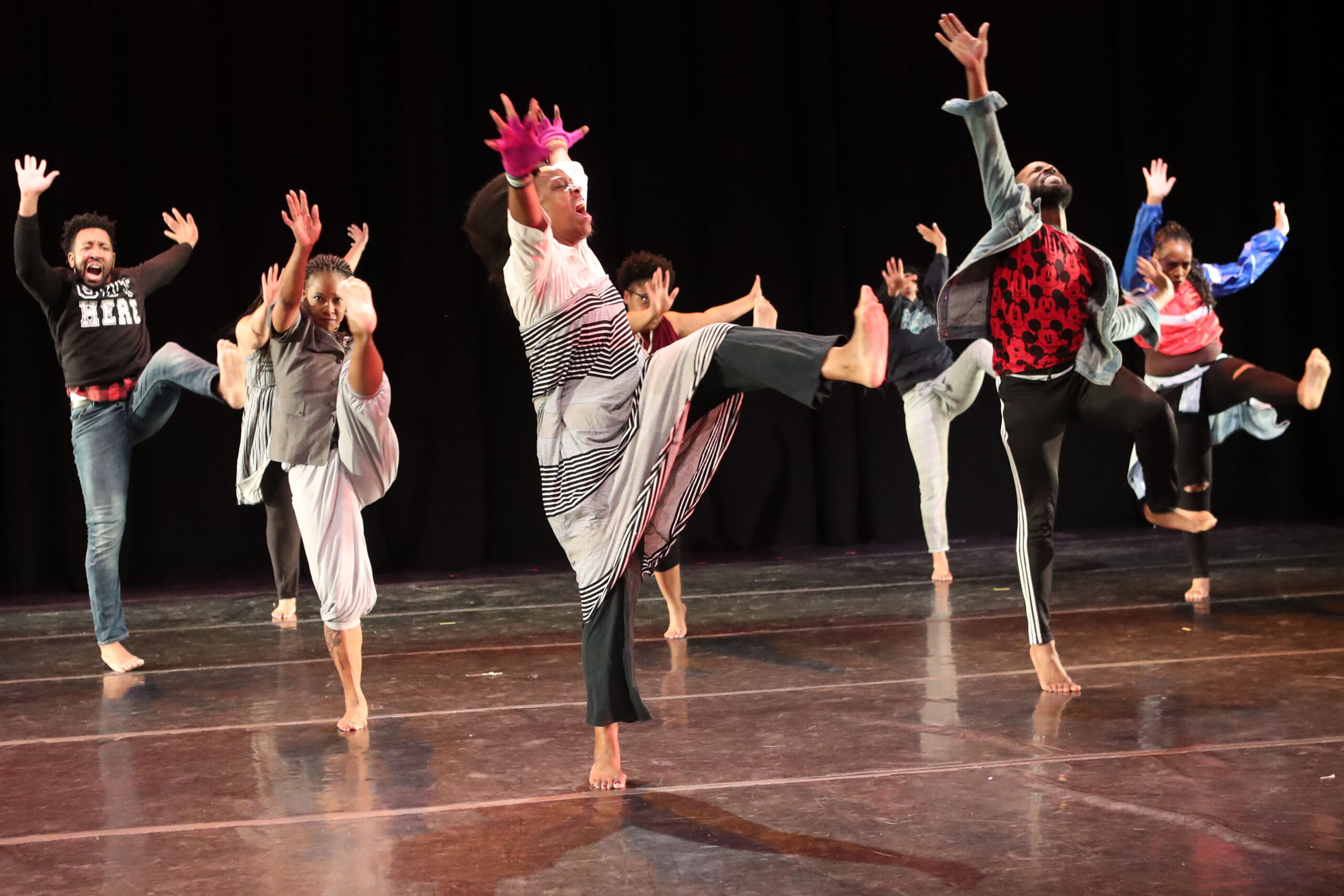

VCRC is an anchor organization in East Contra Costa County that works with immigrant families in Byron and Brentwood to build leadership and power. VCRC’s work reflects the ZFF’s theory of change and centers those impacted in addressing issues and finding solutions.
Immigrant parents in the area have long been excluded from the educational process impacting their children’s school experience. Without access to language-appropriate materials and translation at school and district meetings, non-English speaking parents did not have a voice nor the understanding of how to engage the education system. VCRC organized parents around pressing issues like academic success and COVID protocols in schools—issues that resonate with all families—to advocate for better systems and practices at the school and district levels that are inclusive and benefit everyone. This includes standardizing translation and interpretation policies, creating a culture of welcome and learning, and operating with transparency.
With support from VCRC, immigrant families are writing a new narrative for themselves where they are no longer shut out of or helpless in their children’s educational journey, but active participants wanting, like the rest of us, what is best for their children. They are leaning into their power and showing local leaders how systems and institutions should work.
In 2018, ZFF seeded funding for CCT to reimagine California’s approach to children’s behavioral health through a Framework for Solutions that acknowledges the harms of structural and systemic racism and is informed by the wisdom of marginalized communities.
To achieve its vision, CCT is influencing sustainable youth mental health systems change through its advocacy to:
Remove diagnosis as a prerequisite for treatment and center the impact of race and class on children’s mental and behavioral health.
Expand provider classifications to shift agency (who does the work) and power (who gets paid to do it) in youth mental health systems.
Center schools as places of healing for children and youth.
Use Medi-Cal as a tool for equity and social justice by claiming against existing expenditures in child serving systems and creating new benefits for expanded support.
Enable families to heal and thrive together through Dyadic Benefit, Family Therapy Benefit and California Wraparound services.
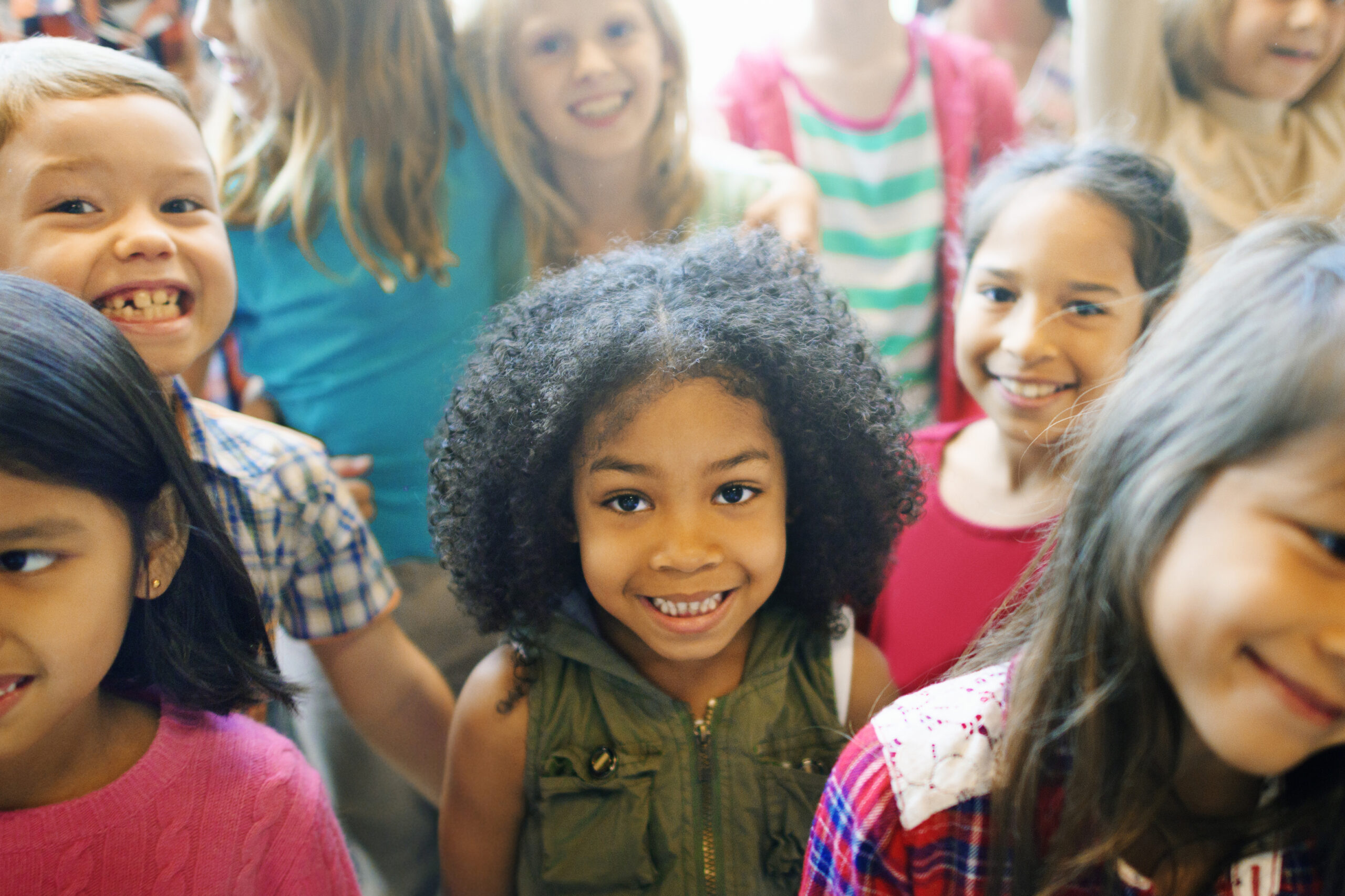
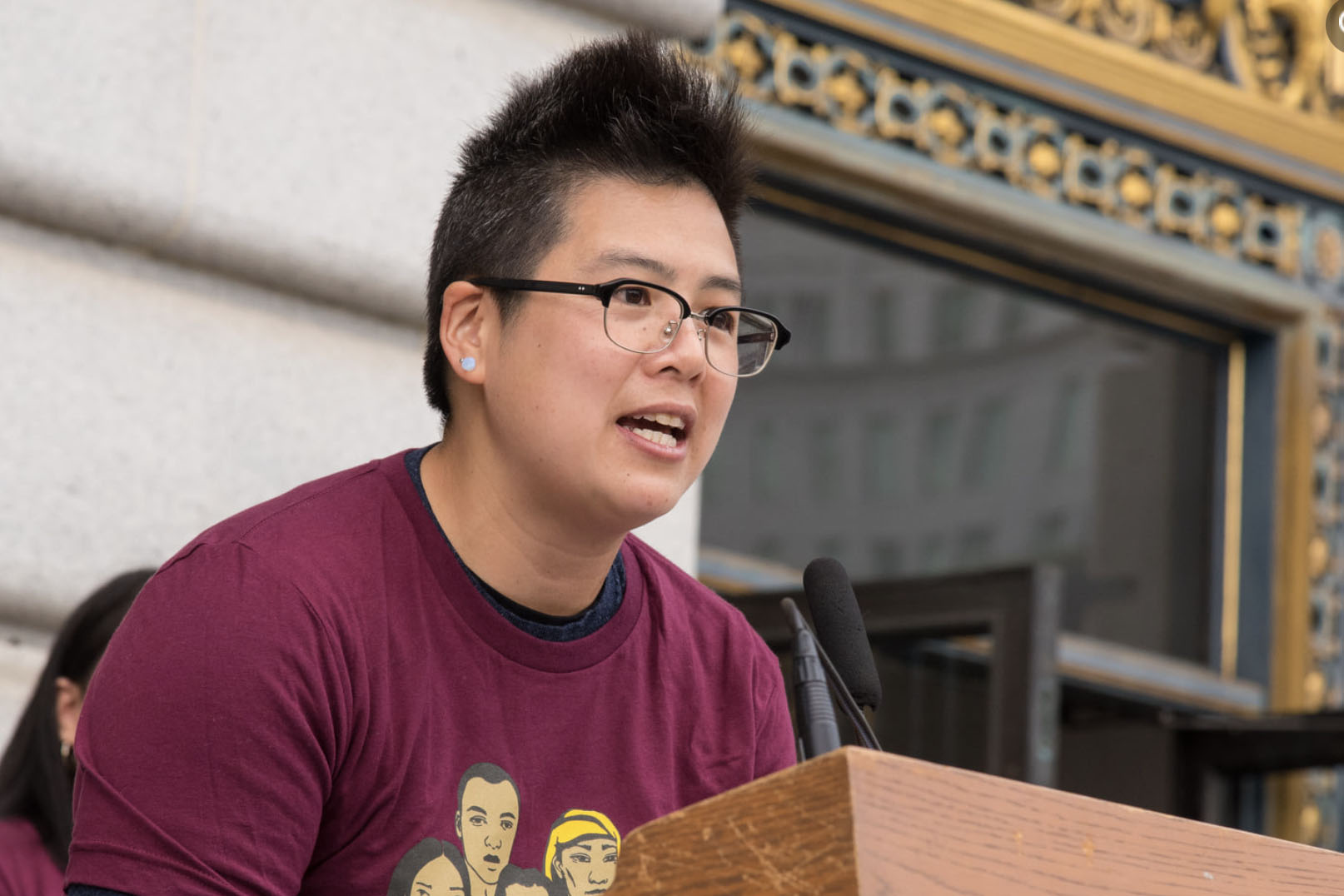
CAA is a trusted organization in the Bay Area working to support Asian American and Pacific Islander (AAPI) communities. CAA’s work builds allyship across communities of color and advocates for effective community-based prevention and intervention strategies grounded in shared experiences and common desires to thrive and feel safe. This directly aligns with ZFF’s strategic framework and helps to increase inclusion and a sense of belonging.
CAA was a leader in responding to the rise of anti-Asian violence due to the COVD-19 pandemic and helped establish Stop AAPI Hate (SAH), the leading aggregator of anti-Asian American hate data in the nation. Through this platform, CAA tracked and developed community-centered responses to anti-Asian racism and xenophobia that centered the needs of impacted community members, focused on government accountability, and engaged AAPI communities in restorative and healing justice practices. CAA developed resources to support community action, including multilingual public safety tips for those experiencing or witnessing acts of racism; created and disseminated education materials to support discussion about anti-Asian racism; outreached to limited English proficiency communities; and provided information about laws protecting community members against discrimination. In 2021, the governor signed the API Equity Budget that allocated more than $156 million towards addressing systemic discrimination and the rising hate incidents against AAPI communities.
What makes CAA a leader and its work relevant beyond AAPI communities is its ability to connect anti-Asian hate experiences to broader issues of safety, resiliency and healing, and systemic racism. Violence towards Asian Americans is not new. Its history is tied to the ongoing harm and exploitation of Black and brown communities codified in law and kept silent in shame. CAA not only addresses the immediate injury; it explicitly links these seemingly disparate experiences to better understand the root causes of violence, crime and racial bias, and promotes cross-community healing and education.
Service & system innovation
Pilot innovative approaches to providing services or structuring systems so they better reflect the needs and strengths of the people they serve
Systems leader engagement
Partner with both political leaders and leaders of public systems to provide education, inspiration, and incentives to transform public systems into truly community embedded and community serving entities
Community-based art and culture
Increase the production of community-based art and culture, particularly from under-represented voices
Narrative change
Support the development of alternative narratives that celebrate the culture and contributions of all groups, particularly those who have been left out or misrepresented
Collaboration and coalition building
Encourage interagency and multi-disciplinary collaboration, and support coalitions to develop coordinated responses to complex problems and maximize limited resources
Policy and legal advocacy
Support the development, revision, and/or implementation of effective policy at the organizational, local, and state levels- including the provision of direct services that inform those policies
Base building
Educate and engage community members about a range of issues that impact their lives, cultivate natural community leaders, provide infrastructure and healing supports that enable engagement
Organizing
Encourage active participation in community and political dialogue, especially around specific issues or campaigns that will improve equity and contribute to a thriving Bay Area
We focus our resources on tangible systems change to help improve the lives of the people we serve.
Why In order for people to be free and live in their full humanity, they must feel a sense of safety and belonging. True belonging requires mutual power, access, and opportunity among all individuals and groups. When we have shared empathy and a stake in one another’s well-being, we all benefit.
What ZFF works to promote healing and bridging among individuals and communities; further a sense of welcome, shared safety, and well-being for and among all residents; and ensure opportunities to shape decisions and practices that affect everyday life.
How Safety and Belonging grants support efforts to build community-based responses to the needs of residents, centering the lived experiences and expertise of youth and families, including immigrants. We will focus on the transformation of the justice, child welfare, children’s mental health, safety net, and/or immigration systems as they function at the local and statewide levels.
Why We believe that arts and culture play a role in creating a thriving Bay Area by ensuring the voices, experiences, traditions, and dreams of all individuals and communities can be appreciated and celebrated.
What We support great art created by artists working with, in, and for their communities. Our Arts & Culture grants ensure vibrant work is created, new voices are celebrated, and artists and audiences inclusive of the Bay Area’s diverse communities and cultures have opportunities to thrive.
How The Community Arts program supports the creation of work by Bay Area artists and access to the arts for Bay Area communities. It celebrates the rich diversity of the region by awarding funds to emerging artists and small to mid-sized arts and culture organizations engaging their communities with meaning and purpose. We support the use of art and culture in changing narratives and giving voice to those who have been historically excluded from telling their own stories.
Communities in San Francisco, Alameda, and Contra Costa counties experience some of the region’s most complex challenges—and they also hold the solutions. We believe that increasing our investments in the power, imagination, and partnerships in these communities will benefit our entire region.

Home to ZFF’s deepest roots, San Francisco continues to be a place to share ideas, engage in rich dialogue, and confront each other’s perceptions and beliefs in a way that can strengthen the city and influence broader change.
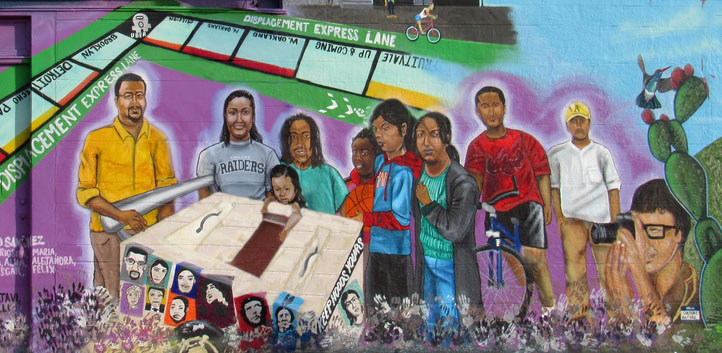
Characterized by its rich diversity and culture, Alameda County is now one of the most ethnically diverse regions in the Bay Area—and the nation. A collection of strong communities organizing and using art and culture to lift up all voices, Alameda County is anchored by the wisdom, passion, and unique strengths of its young people.
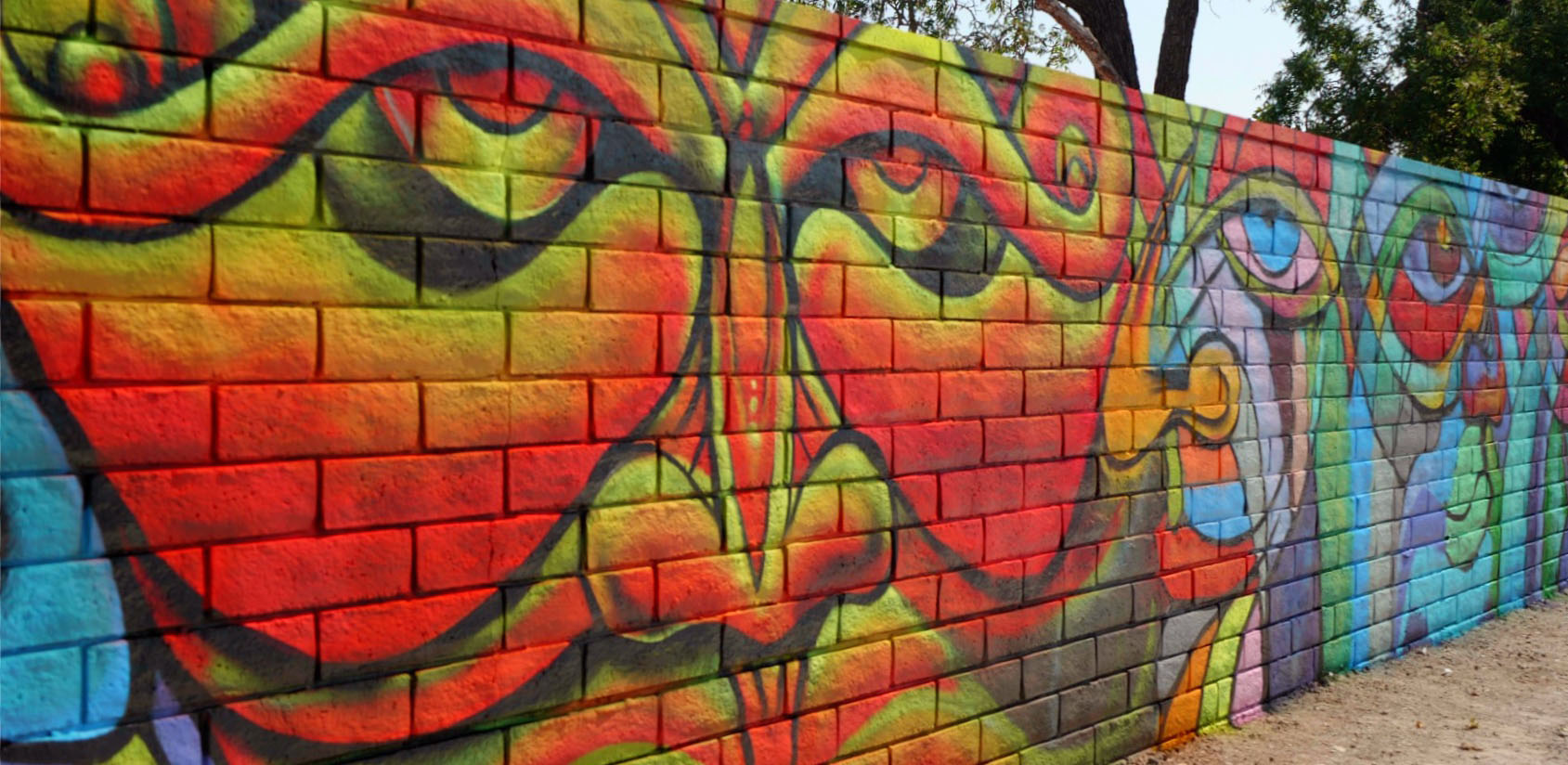
With the Bay Area’s fastest growing immigrant population along with its ethnic, social, and geographic diversity, Contra Costa County offers tremendous opportunity to bridge the gaps amongst communities so everyone can participate and thrive.
See What's New at ZFF
Photo Credits
Mario De Moya F, Hannah Smith, Edward Miller Photography, Rawpixel.com, Village Community Resource Center (VCRC), Bob Hsiang, Precita Eyes Muralists, Francisco + 67 Youth, Hermain “Big Herms” Ambriz and his brother Joshua “Josh” Ambriz
Copyright © 2025 Zellerbach Family Foundation.
Site created by: Outside Voice, Natalie Kitamura Design, and PikaLabs.